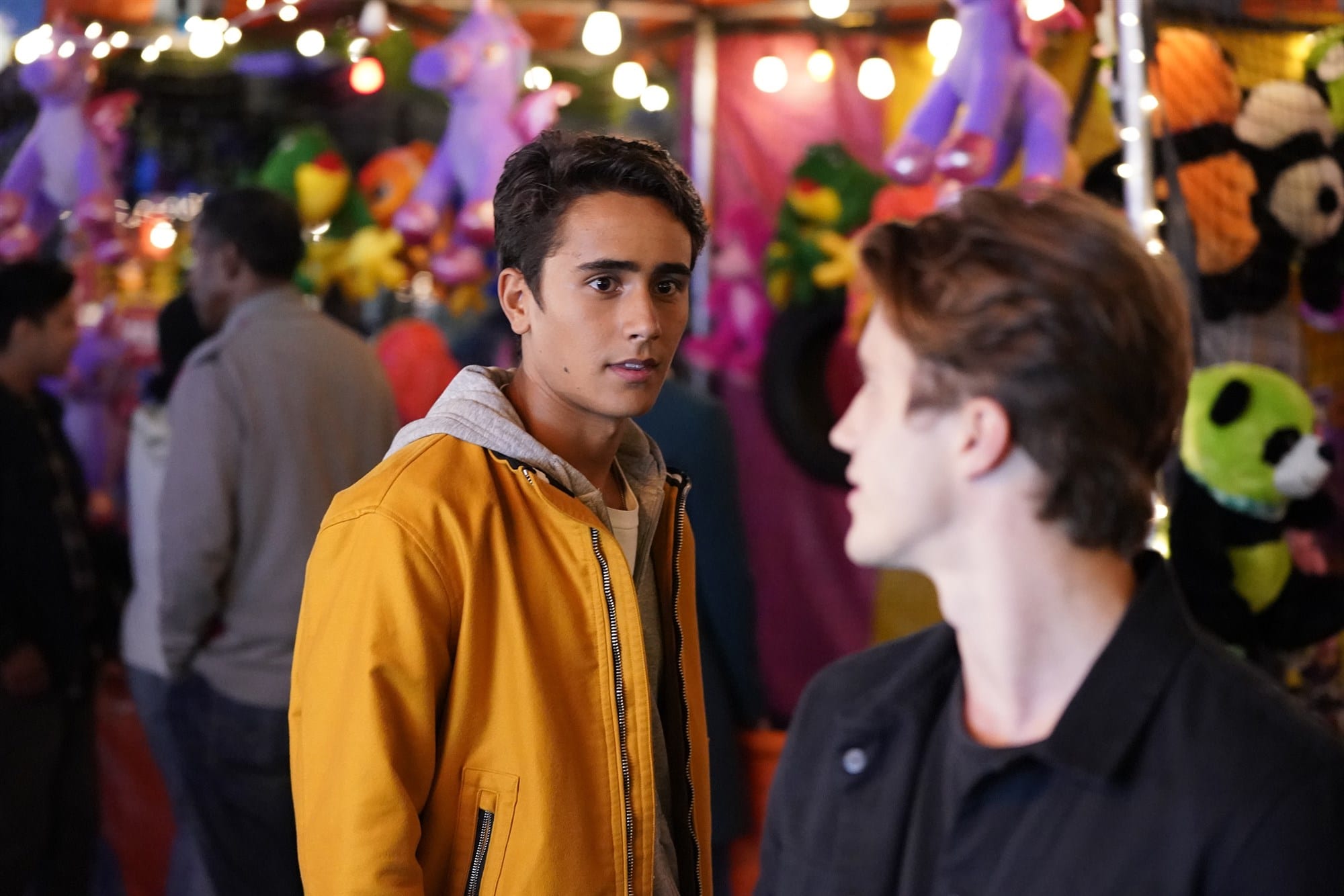When the 2018 film Love, Simon premiered, it made history. As the first film in the studio system to centre a gay teen’s coming out, the picture bucked industry conventions that relegate queer storytelling to the independent sphere. And under the direction of the legendary Greg Berlanti (Brothers & Sisters, Political Animals), it soared, tugging on the heartstrings of many queer people who could’ve used a similar film when we were younger.
This is the foundation upon which Hulu’s Love, Victor—now streaming in the U.S. (no Canadian streaming services have picked it up, yet)—builds into a charming yet spicy exploration of what it means to come of age and come into oneself for those of us not white. It’s a worthy spin-off amid a largely lacklustre reboot craze.
For those unfamiliar with the film, which was adapted from Becky Albertalli’s young adult novel Simon vs. the Homo Sapiens Agenda, it starred hearthrob Nick Robinson as Simon, a 17 year old who has yet to tell his family or friends that he’s gay. His only confidant is an anonymous classmate with whom he trades emails and with whom he soon realizes he’s in love. By the end of the film—and here’s a slight spoiler alert—he finds the love of his life, comes out and goes off to college in gay bliss. (You don’t need to see the film before watching the series.)
Love, Victor is set in the same high-school world some years later. Simon’s coming out, and the community’s support of Simon, is a part of the school lore, and being gay isn’t supposed to be that big of a deal. Or at least that’s what Victor Salazar, played endearingly by Michael Cimino, is hoping for as he moves to the community with his family with the idea that he may finally be able to figure out who he is. But after meeting two of his new classmates, Mia (Rachel Hilson) and Benji (George Sear), he experiences a flurry of emotions—sexuality is fluid, after all. The film and the show are connected through DMs between Simon and Victor, who wishes he, too, had a family he knew would be supportive of him no matter his orientation.
Admittedly, in a world where reboots, remakes and spin-offs are a dime a dozen—from Will and Grace to Lena Waithe’s Boomerang—Love, Victor comes at a time when many of us are spent. We want Hollywood to make new, fresh content instead of mining the stories and characters we already know for half-hearted, tired attempts at recreating the magic that once was. To that end, I was at once excited and rolling my eyes upon the show’s announcement. But, to my pleasant surprise, the show (led by writers Isaac Aptaker and Elizabeth Berger, who also wrote the film) breathes new life into what could’ve been a waste of time, energy and money.
This is done, perhaps most prominently, by having our central character be Latinx with a Latinx family that doesn’t shy away from that fact. In just about every episode, we get a glimpse into the family’s complex and complicated dynamics as secrets are revealed and generational and cultural differences clash with the new life the Salazars are trying to create for themselves. While I can’t speak to their authenticity—I’ll leave that to critics of Latinx backgrounds—I will say that, as characters, they feel real to me and don’t appear to pander to what will be a presumably largely white audience. That said, it is a teen drama and there are plenty of soapy elements to go around. The first three episodes of the series are a little paint-by-the-numbers, trafficking in predictability. But episode four is where the show kicks into high gear and becomes more than just a story about the difficulties of discovering oneself.
Also of note is how Love, Victor introduces more layers to the narrative by having the Salazars be working class, compared to many of Victor’s classmates. Though such a trait somewhat buys into a long-held and oft-proliferated trope by Hollywood, it’s apparent that the writers have tried to elevate such class distinctions beyond purely the haves and have nots. How successful they are remains to be seen.
That said, Love, Victor has almost everything I want to see in new programming that claims to be a reflection of younger generations who are far more advanced than I was at their age. It centres a family of colour, doesn’t treat its presumably young audience as ignorant and weaves comedy into its drama with finesse. The slate of young actors show promise beyond their years, keeping up with stellar performances by more senior actors, including James Martinez and Ana Ortiz, who play Victor’s parents, and hilarious cameos from Natasha Rothwell, who reprises her character from the film.
This show gives me hope. When I think about the ongoing calls for industry inclusion—and particularly those asking that LGBTQ2 characters finally get their day in the spotlight—this show gives me hope. Like the film it grows out of, Love, Victor is bucking convention. And regardless of its success—though I hope it is a major hit—the idea that queer people (and especially queer people of colour) can’t be the centre of our own narratives should finally be quashed.
Maybe spin-offs aren’t so bad after all.


 Why you can trust Xtra
Why you can trust Xtra


